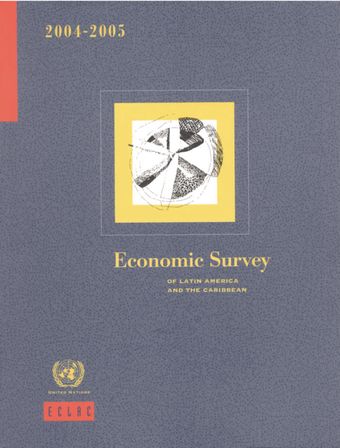Brazil

- Author: Economic Commission for Latin America and the Caribbean
- Main Title: Economic Survey of Latin America and the Caribbean 2004-2005 , pp 161-168
- Publication Date: December 2005
- DOI: https://doi.org/10.18356/38e9797c-en
- Language: English
In 2004, the Brazilian economy recorded its strongest expansion in 10 years, with growth in GDP attaining 4.9%. This performance took place against the backdrop of a favourable balanceof-payments position attributable to an unprecedented surplus on both the trade and currentaccount balances, which led, in turn, to an improvement in external borrowing indicators. On the domestic front, the fiscal primary surplus increased and the nominal deficit on the public accounts shrank to its lowest level in decades, thus helping to reduce public-sector debt. On the strength of this economic upturn, as reflected in the behaviour of its principal indicators, Brazil decided not to renew its agreement with the International Monetary Fund (IMF), following six years of Fund programmes.
-
From This Site
/content/books/9789211555684s004-c004dcterms_title,dcterms_subject,pub_keyword-contentType:Journal -contentType:Contributor -contentType:Concept -contentType:Institution105



